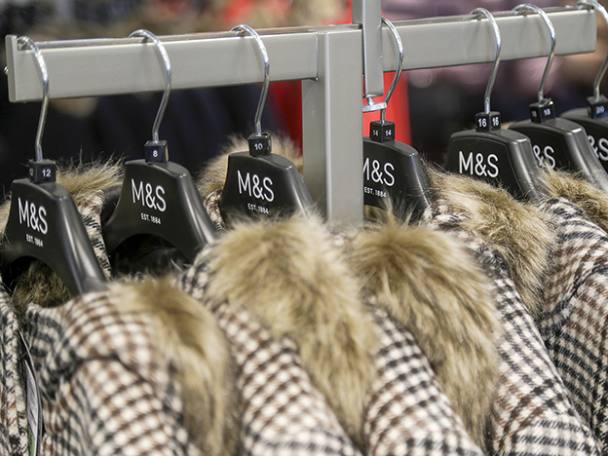- M&S’ shrinking clothing business was hit further during the coronavirus pandemic
- Management needs to overhaul its tired brands before the retailer can be attractive to investors again
Marks and Spencer (MKS) knows the value of its food business. Last month the company announced it would take German rival Aldi all the way to court in order to protect the copyright on its Colin the Caterpillar cake.
The increasing need to build a competitive moat around its food aisle was underlined in the retailer’s latest results. In the year to March, M&S said UK food sales made up almost two-thirds of its total revenues, up from 59 per cent during the prior year.
Yet as the coronavirus pandemic hit demand for its clothing and home products, the resilience of M&S’s supermarket operation has not been strong enough to support the top line, which dropped 12 per cent to £8.9bn. From a pre-tax profit of £67.2m in the previous year, it swung to a £201m loss, exacerbated by the increasing reliance on traditionally lower margin food sales.
A descent into the red was not only the result of weaker revenue, but exceptional charges that totalled £260m. Those largely related to store closures and a head office cull, as management embarks on a dramatic overhaul of the business.
M&S’s reliance on its supermarket business has increased further in the short term, as consumers spent less on fashion during lockdown. Yet the proportion of sales from clothing products was falling even before the pandemic. In the year to March 2018, 35 per cent of revenues came from clothing and home; food sales have gobbled up more of the M&S cake every year since then.
While M&S has found a niche supplying upmarket meals for the middle classes, its fashion lines have struggled to stay competitive. Once a hallmark of UK quality, it is now playing catch-up with the likes of Next (NXT), which has adapted quicker to the rise of ecommerce and demands for fashion to be faster and trendier.
M&S's clothing business is likely to continue shrinking unless the ongoing shake-up can make it fashionable again. Investment is being funnelled into an ecommerce drive – it said it has closed or relocated 83 stores, and now plans to shut 30 more. The online push will match the earlier revamp of its food operation, which joined forces with online grocer Ocado (OCDO) in 2019; the partnership delivered £2.4bn in revenues to M&S during the 12 months to February.
Helped by the shift online during the pandemic, M&S’s online growth accelerated this year, partially offsetting the decline in store sales. Yet even with the revamp in full swing, analysts are still not anticipating earnings per share to return to pre-pandemic levels before 2024, according to the consensus forecast.
The tagline for M&S’ overhaul strategy — 'Never the Same Again' — would seem to underline management's awareness of the company's below-par performance in recent years. A satisfactory online operation has been a long time coming, but filling the website with clothes that shoppers actually want to click on and buy could prove the most difficult step. Investors should wait for more positive signs before turning positive. Sell at 167p.
Last IC view: Sell, 92p, 4 November 2020.
| MARKS AND SPENCER (MKS) | ||||
| ORD PRICE: | 167p | MARKET VALUE: | £3.27bn | |
| TOUCH: | 166-167p | 12-MONTH HIGH: | 167p | LOW: 86p |
| DIVIDEND YIELD: | NIL | PE RATIO: | NA | |
| NET ASSET VALUE: | 116p | NET DEBT: | £3.4bn | |
| Year to 28 Mar | Turnover (£bn) | Pre-tax profit (£m) | Earnings per share (p) | Dividend per share (p) |
| 2017 | 10.6 | 176 | 7.2 | 18.7 |
| 2018 | 10.7 | 66.8 | 1.6 | 18.7 |
| 2019 | 10.4 | 84.2 | 2.5 | 13.3 |
| 2020 | 10.2 | 67.2 | 1.3 | 3.9 |
| 2021* | 8.97 | -209 | -10.1 | nil |
| % change | -12 | - | - | - |
| Ex-div: | na | |||
| Payment: | na | |||
| *53 weeks to 3 April | ||||









